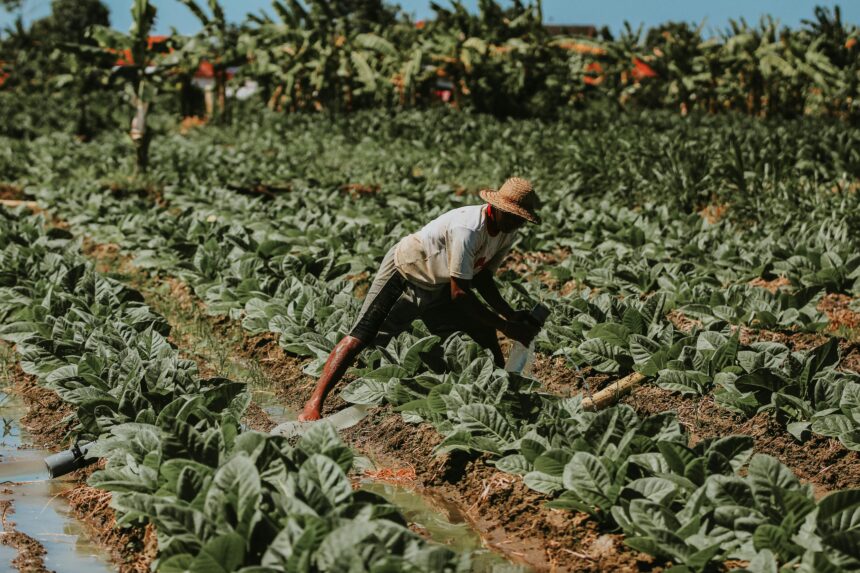For generations, Africa has been known for its abundant natural resources, including gold, oil, and minerals. Agriculture, on the other hand, represents the true gold of the twenty-first century. With more than 60% of the world’s uncultivated arable land, Africa has the potential to become a global leader in food production, agribusiness, and agricultural exports.
Agribusiness is no longer only about subsistence farming; it has grown into a booming multibillion-dollar industry that draws investors, entrepreneurs, and legislators. Agriculture has the potential to revolutionize Africa’s economy, create jobs, and enhance food security if the appropriate infrastructure, regulations, and investments are implemented.
The Nigerian agricultural Group’s (NABG) Presidential Roundtable (PRT) is one of the efforts promoting strategic conversations to realize Africa’s entire agricultural potential. This article delves into why agribusiness is the future, how exports and imports may drive economic growth, and what policies are required to optimize this goldmine.
Why Agribusiness is thriving in Africa
1. Rising Food consumption in Africa
With a predicted population of 2.5 billion by 2050, food consumption is expected to increase globally and locally. At the same time, global markets are increasingly turning to Africa for raw and processed agricultural products. Countries such as China, the European Union, and the United States import large amounts of African cocoa, coffee, tea, cashew nuts, and palm oil. This growing demand provides an excellent chance for African farmers and agribusinesses to boost their production and enter the international market. To properly capitalize on these potential, African countries must invest in infrastructure, mechanization, and storage facilities to ensure that agricultural goods are of high quality and export-ready.
2. Increase in agribusiness investments
Governments, development banks, and private investors are investing billions in agricultural projects. According to the African Development Bank (AfDB), agricultural accounts for 35% of Africa’s GDP, with foreign direct investment (FDI) in African agribusiness estimated to exceed $45 billion by 2030. In Nigeria, efforts like the NABG Presidential Roundtable (PRT) are essential in connecting politicians with investors and driving money into the sector. Africa is progressively converting itself into a global agricultural powerhouse by boosting farmer access to financing, promoting agribusiness companies, and building value chains.
3. Agroprocessing and value addition
One of the most significant changes in Africa’s agribusiness sector is the shift from exporting raw resources to processing them domestically. Countries such as Nigeria, Kenya, and Ghana are creating agro-processing zones to convert crops into finished items like as chocolate (made from cocoa), packaged fruit juices, and processed grains. This transition is critical because it boosts revenue, creates jobs, and improves Africa’s competitiveness in global markets. By processing agricultural products in Africa, more value is preserved, allowing firms to produce better profits rather than exporting raw materials for processing elsewhere.
MUST READ;HIIT Workouts: The quickest way to burn fat?
Export and Import’s Impact on Agribusiness Growth
1. Agricultural exports: Increasing foreign exchange earnings
Agricultural exports contribute significantly to Africa’s economy, bringing in billions of dollars per year. Africa exports a variety of agricultural products, including cocoa (Ivory Coast, Ghana, Nigeria), cashew nuts (Nigeria, Tanzania, Mozambique), tea and coffee (Kenya, Ethiopia, Uganda), and palm oil (Nigeria, Indonesia, Malaysia). These exports provide much-needed foreign exchange revenues, thereby promoting economic stability and employment development. However, one of Africa’s most significant concerns is its persistent reliance on raw commodity exports. Many African countries continue to export raw materials rather than finished products, limiting their earnings potential. For example, while Ivory Coast and Ghana are the world’s greatest cocoa producers, they sell raw cocoa beans rather than processed chocolate, resulting in lost revenue. If Africa promotes value addition, it has the potential to greatly enhance its agricultural export profits.
2. Importing agricultural equipment and technology
While exports generate cash, strategic imports are required to improve Africa’s agriculture. African countries buy tractors, irrigation systems, fertilizers, insecticides, and processing equipment to mechanize agriculture and increase agricultural production. African agriculture may become more competitive and sustainable by balancing export revenue with required imports. Investing in advanced farming gear and post-harvest storage facilities will allow African farmers to increase yields while minimizing losses.
Nigeria’s Role in Agricultural Transformation
Nigeria, Africa’s largest economy, has vast agricultural potential, with more than 70 million hectares of fertile land. However, reliance on oil revenues has hampered agricultural expansion, resulting in food imports and post-harvest losses. To reverse this trend, the government has undertaken efforts such as the Agricultural Transformation Agenda (ATA) and the Anchor Borrowers’ Program (ABP) to increase production and exports. The Nigerian Agribusiness Group (NABG), which promotes public-private collaboration, has been a crucial driver of this transition. Its Presidential Roundtable (PRT) acts as a strategic platform for policy development, investment attraction, and guaranteeing Nigeria’s agribusiness competitiveness.
Conclusion: The Future of Agribusiness in Africa
Agricultural industry is Africa’s new gold. With its huge acreage, growing population, and rising global demand, agribusiness offers an unprecedented opportunity for wealth generation. By investing in exports, agro-processing, and technology, Africa can transform its agricultural sector into a worldwide force. Initiatives like the NABG Presidential Roundtable are critical to influencing the future of agribusiness, ensuring that policy reforms, financing, and innovation promote long-term growth. Africa’s agribusiness has a promising future; now is the time to invest, innovate, and prosper.


